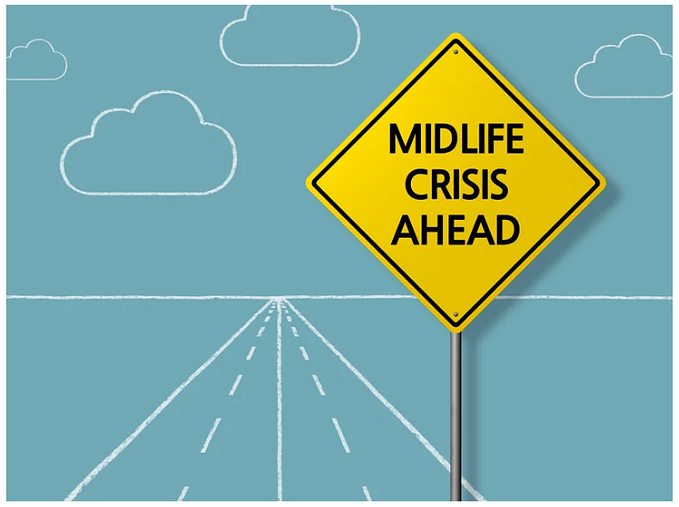When Did Popular Music Become Uncool?

Jack Antonoff talked about when he thought popular music became uncool in his 2014 interview with Larry King. I recently watched this interview and was taken aback by his perspective. As a young Millennial/elder Gen Z, I’ve always understood the music community to be critical of mainstream music and brag about the underground artists they had discovered. Only recently had I noticed music fanatics begin to acknowledge the talents of popular artists instead of calling them industry puppets or “basic”. I attribute my perception of music culture to coming of age in the hipster era that followed “The Perks of Being A Wallflower” movie adaptation and growing up on Tumblr. In the Larry King interview, Antonoff points out that for a long time popular bands like The Rolling Stones or Pink Floyd were also considered the cool bands that people were proud to be fans of. I never thought about it that way because at the time I was growing up, classic rock was out of fashion enough in mainstream youth culture to be fashionable among alternative youth culture, which is why I was such an annoying ass with a superiority complex as a teenager. Back to the Larry King interview, Antonoff claims that rap rock in the 90’s ruined popular music’s reputation to a near-unrecoverable degree. I think there’s more to the hatred of popular music that has to do with gatekeeping, sexism, and counterculture.
I looked through forums and YouTube videos to see if Antonoff’s argument that popular music in the 90’s is what ruined popular music overall and found that that’s actually the general consensus. Most people singled out nu metal as the popular genre of music that made everyone who previously liked popular rock start to hate it. There wasn’t too much deep meaning behind it. Only people just really hating how that music sounded and the aesthetic of white people with dreadlocks and questionable facial hair all aging horribly. There wasn’t much talk of addressing the deeper problematic nature of the genre, such as cultural appropriation and sexism because people couldn’t even stand the surface level of the genre. Considering the mass agreement, it’s fair to attribute killing rock in the mainstream to nu metal.
That explanation doesn’t totally close the case for me though because I remember growing up in the 00’s when critique of popular music was about pop music being unintelligent and ingenuine. It was an era of pop stars and boy bands and the music was upbeat, danceable, and glamorous. Music enthusiasts did not like that songs on the radio were sung by industry plants who hired songwriters, and the performers were more like products than artists. Pop music was mostly happy, simple, and accessible. You didn’t need to have a background in music theory or playing instruments to appreciate complicated songs like in rock or jazz. Some people don’t like that because they can’t feel better than everyone else by liking something they worked at to understand its complexity. They could no longer gatekeep popular music with elitist opinions.
The simplicity and accessibility of pop music was a deliberate strategy made by men in suits to further commercialize the music industry and appeal to the lowest common denominator. However, these teen idols and boy bands were mostly enjoyed by young girls, the LGBTQ+ community, and sometimes housewives, people whose interests didn’t hold much cultural capital, or weren’t taken seriously, but could be capitalized on. Still, just because pop music was constructed to be easy to understand and repeatedly covered topics like young love, partying with friends, and the general woes of adolescent girls doesn’t mean someone should be ashamed of liking it. It makes a lot of people who often don’t feel valued feel seen, and our culture has repeatedly let them down by making fun of literally anything that young girls enjoy. There’s a lot of reasons why one should hate pop music, especially in the 00’s like the lack of diversity or commercialism, but the standout reason why people hated it was because it was marketed to young women and our culture doesn’t respect their opinions.
It should also be acknowledged that there have always been people who don’t like popular music in every decade, not just the 90’s onward. Countercultures like the teddy boys, mods, hippies, punks, and ravers are a few examples of tribalism in music and art, some more alternative than others. This against the grain mentality and way of life are good for music and culture to maintain diversity. It shows independent thinking, a healthy dose of teenage rebellion, and for many, was how they found like minded people and representation where it was lacking in the mainstream.
Ironically, it seems like counterculture has become increasingly mainstream and we are coming full circle into an era of rebels supporting the commercial mainstream again. Over the last ten or fifteen years hipsters have been on the rise. Like many other counterculture communities, it prided itself on being different from the mainstream, but it was capitalized on and now defining features of the hipsters are synonymous with Millennials. In an ongoing increasingly capitalist system, alternative interests and niches were quickly gentrified and hipsters can no longer outrun this pattern. Now it’s almost the most hipster thing to embrace the mainstream because it challenges the Millennial pursuit of the obscure. This of course is also in part due to the twenty year trend cycle causing nostalgia of Y2K pop music for Millennials, or Y2K vintage novelty for Gen Z; and progressing as a culture in terms of starting to validate female interests.
It’s possible that the disdain for mainstream music was a few-decades-long blip in the overall history of music. There’s definitely merit in the belief that nu metal ruined mainstream music in the 90’s because that was broadly the end of rock music in the mainstream as we knew it. Also, in regards to pop music, capitalism and sexism can be partially blamed as well. Pop music is heading in a great direction now considering popular artists like Billie Eilish and Rosalia have been putting out interesting genre-bending music. I’m glad we’re killing the notion of guilty pleasures so we can simply enjoy music together.







